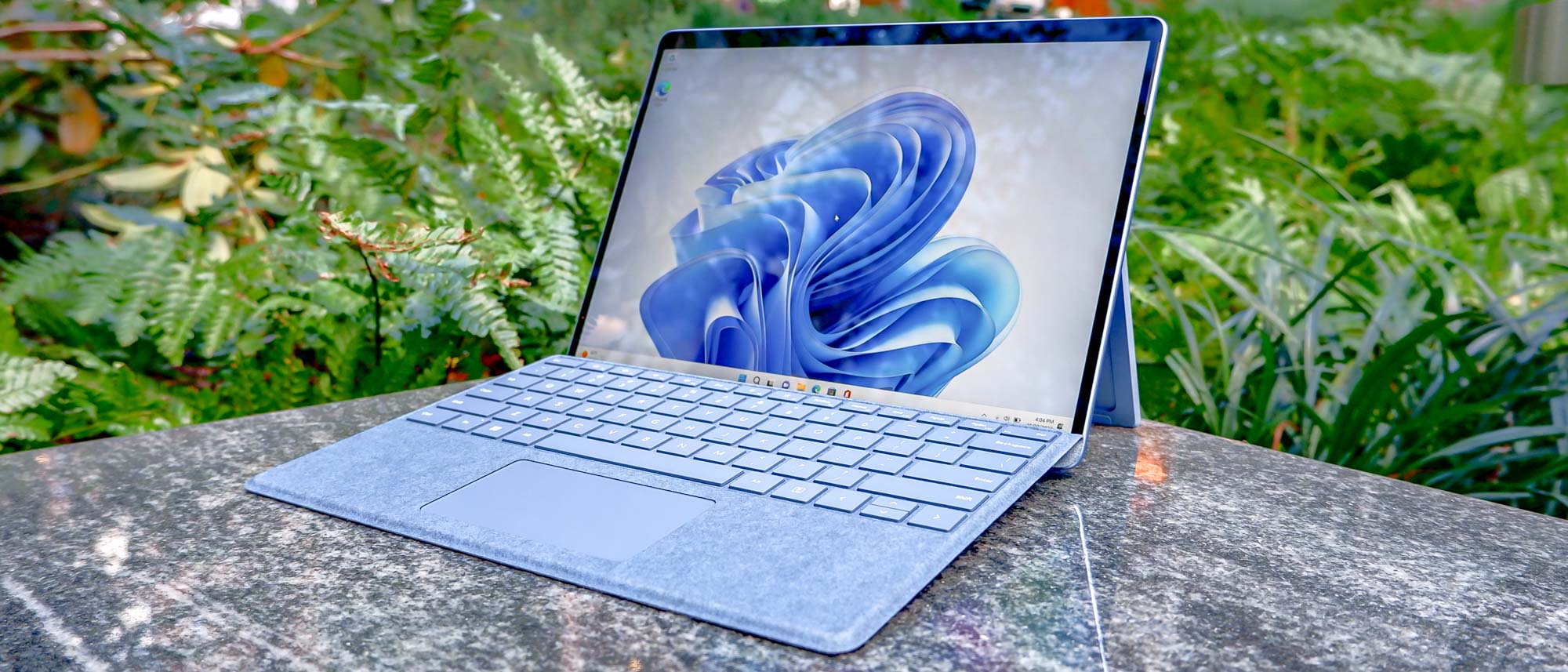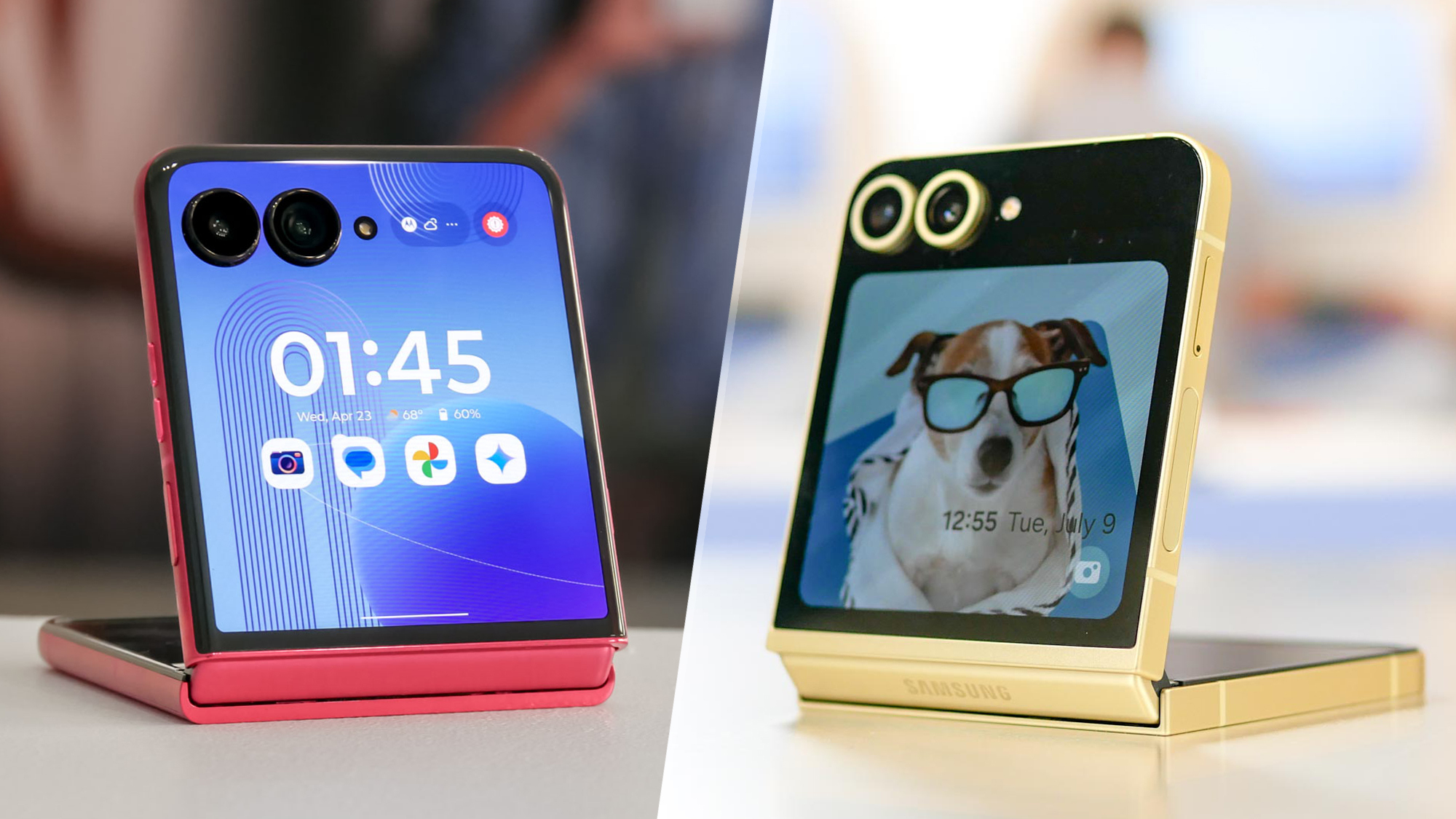Tom's Guide Verdict
The Microsoft Surface Pro 9 is the definition of a minor update. Though it offers two processor options, this 2-in-1 is virtually identical to its predecessor.
Pros
- +
Slim and light design
- +
Responsive touchscreen
- +
Works well as a laptop or tablet
Cons
- -
Unremarkable display
- -
Same old design
- -
Slim Pen 2 and Signature keyboard sold separately
Why you can trust Tom's Guide
Price: $999 (starting), $1,599 (tested)
CPU: Intel Evo 12th Gen Core i7 (tested)
Graphics: Intel Iris Xe Graphics
Display: 13-inch screen (2880 x 1920)
Memory: 8GB - 32GB (LPDDR5 RAM)
Storage: 128GB - 1TB
Ports: 2 Thunderbolt 4/USB-C ports, 1 Surface Connect port, 1 Surface Keyboard port
Size: 11.3 x 8.2 x 0.37 inches
Weight: 1.94 pounds
The Microsoft Surface Pro 9 ($999) is somewhat of a frustrating machine to review. Aside from updated processors, this is virtually the same as the Microsoft Surface Pro 8 I reviewed last year. I don’t have a problem with iterative releases, but I hoped Microsoft would do something to make the latest edition of their flagship Windows 11 2-in-1 more appealing. Sadly, that isn’t the case.
The most interesting thing about the Surface Pro 9 is that it comes in two distinct flavors. There’s a version packing a 12th-gen Intel Core CPU and another with the new Microsoft SQ3 ARM processor. That latter model also offers 5G connectivity, which is a first for the Surface line. And, at least based on what Microsoft showed at its Microsoft Surface event, the 5G model is the only one taking advantage of new neural processing unit (NPU) features.
In this Microsoft Surface Pro 9 review, I’ll delve into what the Intel version has to offer. I’ll also briefly detail how this model differs from its ARM counterpart. And for good measure, I’ll also compare it to the iPad Pro 2022 to see how it fares against Apple’s premium tablet. While it doesn't fare well, this remains the best tablet if you want something that runs Windows 11.
Is the Microsoft Surface Pro 9 good enough to land on our best 2-in-1 laptops and best laptops lists, or should you skip it entirely? Read on to find out.
Microsoft Surface Pro 9 review: Price and configuration
- Starts at $999
- Comes with either an Intel or ARM processor
The Microsoft Surface Pro 9 is available to purchase from the Microsoft Store with a starting price of $999 /£1,099/AU$1,649. This configuration features a 12th gen Intel Core i5 processor, 8GB of RAM, 128GB of SSD memory and Wi-Fi connectivity.
You can also get the aforementioned ARM version for $1,299 /£1,299/AU$2,599. It features a Microsoft SQ3 CPU, 8GB of RAM, a 128GB SSD and 5G connectivity.
The Surface Pro 9 we tested has a Core i7 CPU, 16GB of RAM, Wi-Fi connectivity and 256GB of SSD storage. This configuration retails for $1,599 in the United States.
Microsoft Surface Pro 9 review: Design
- Same design as last year's model
- Relatively small and lightweight
- Various color options
Microsoft didn’t alter the Surface Pro 9’s design in any significant way. To put it more bluntly, this year’s model is exactly the same as its predecessor. I'm not exactly opposed to the design since it's still sleek and practical. But it is somewhat boring.
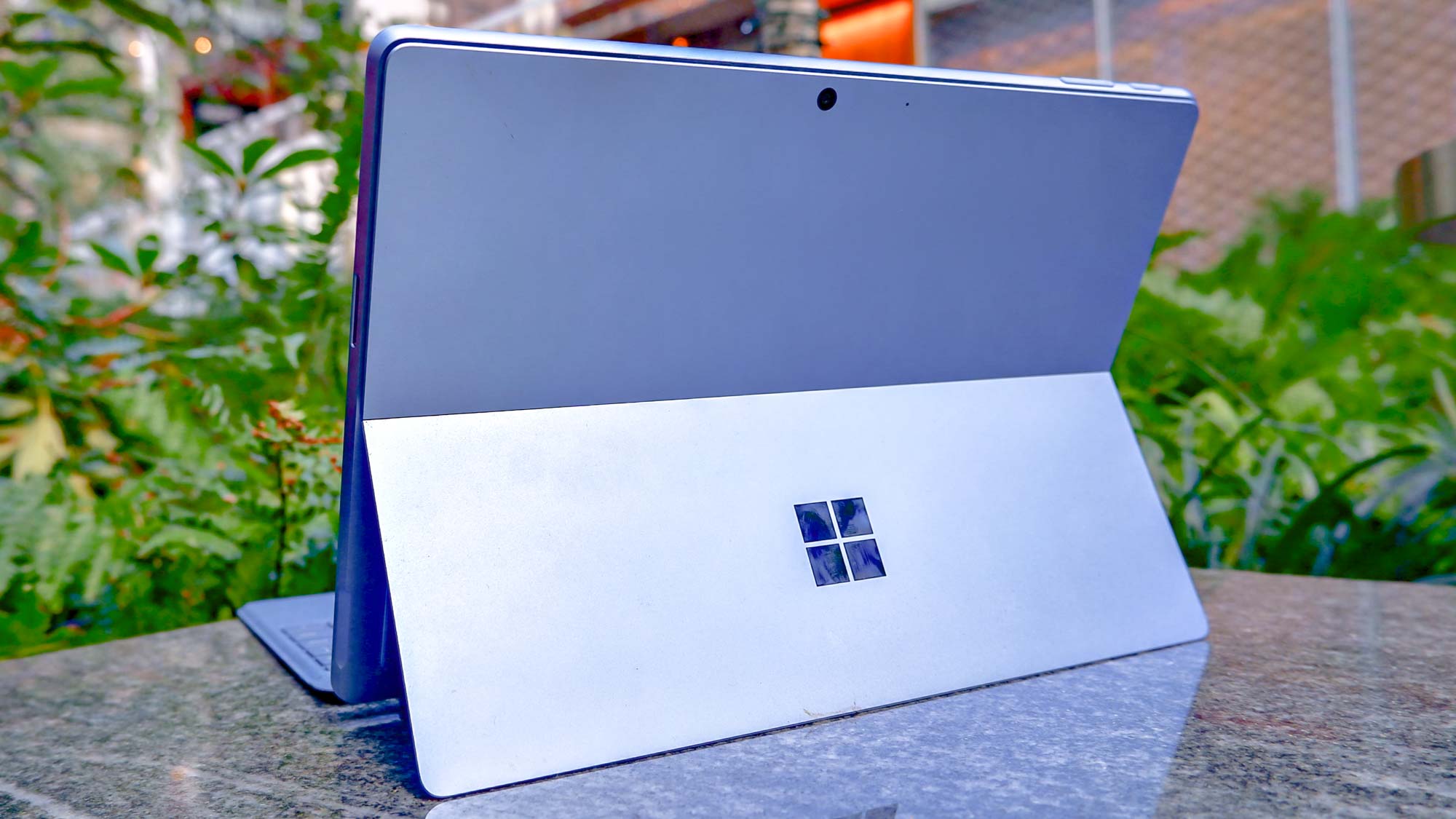
Both Surface Pro 9 models (with and without 5G) measure 11.3 x 8.2 x 0.37 inches and weigh 1.94 pounds. They feature an anodized aluminum body, with a kickstand on the back of the device and a magnetic attach for the keyboard. As before, the Surface Pro 9 is small and light enough to carry around wherever you go.
Color options include Platinum, Graphite, Sapphire and Forest, with the latter three colors only available on Wi-Fi models. While I don’t particularly care for anything beyond the Platinum color option, I think it’s great that the Surface Pro 9 features a slew of different colors.
Microsoft Surface Pro 9 review: Ports
- Minimal port selection
Each Surface Pro 9 model features a different set of ports. This is because only the Intel model includes support for Thunderbolt 4.
Models with Intel chips have a pair of Thunderbolt 4/USB-C ports, a Surface Connect port and a Surface Keyboard port. The Surface Pro 9 with 5G, by comparison, comes with two USB-C ports that don't support Thunderbolt 4, a Surface Connect port, a Surface Keyboard port and a nano SIM slot.
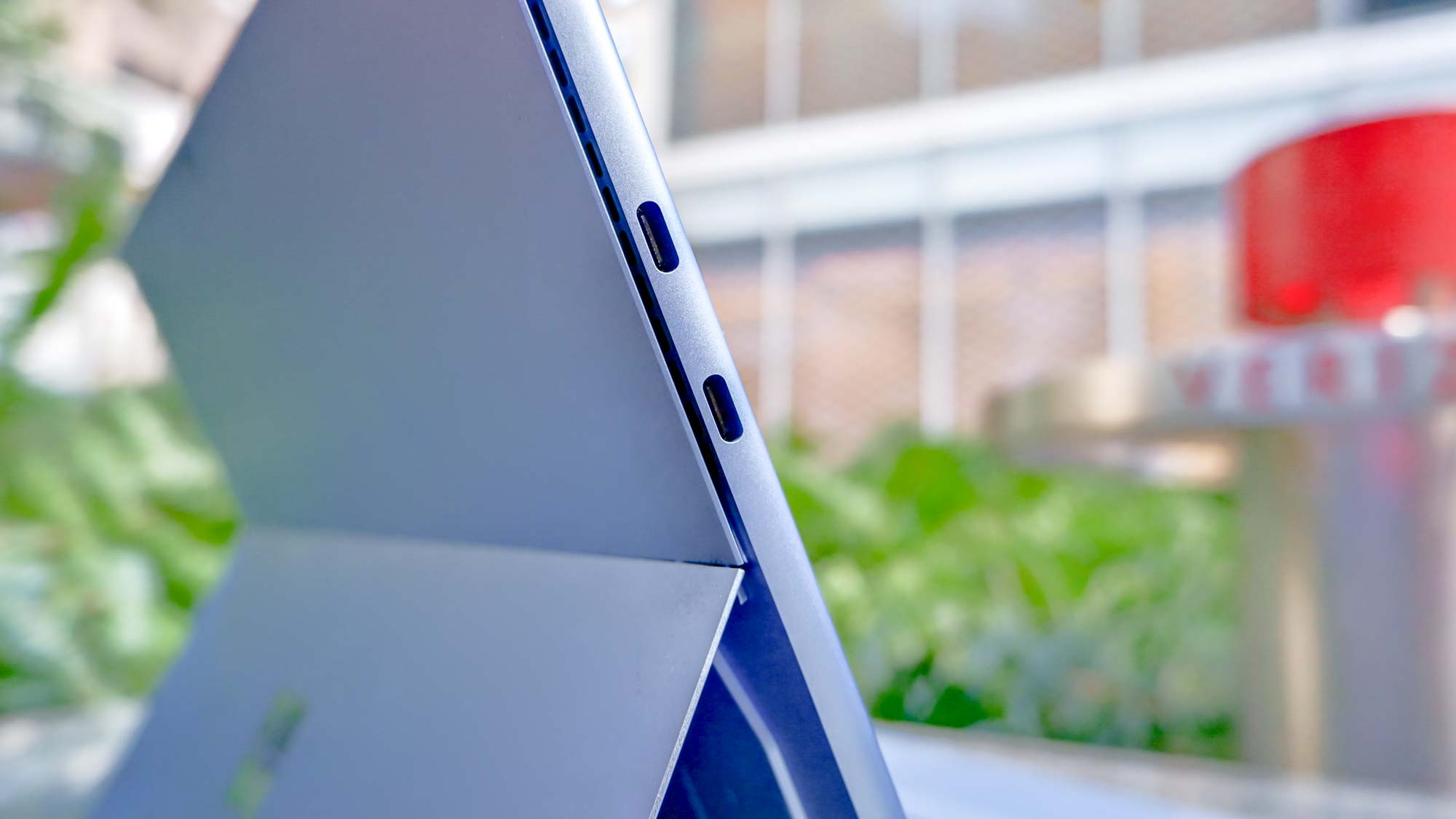
Ports aren’t exactly plentiful on this device. But considering how Microsoft wants to keep this machine as thin as possible, I understand why it’s not packing USB-A or HDMI ports. I didn’t complain about its predecessor’s lack of ports so I won’t do so with this iteration.
Microsoft Surface Pro 9 review: Display
- A decent, if unremarkable display
- Gets decently bright
- Solid color presentation
- Responsive touchscreen
Like the Surface Pro 8, the Surface Pro 9 has a 13-inch PixelSense Flow display (2,880 X 1,920 pixels) with a 120Hz refresh rate and 3:2 aspect ratio. The display won’t blow you away but it’s good enough for whatever you're watching or working on.
The Black Adam trailer, which has a ton of quick cuts between scenes, ran well on the screen and I never felt confused by all the action happening. Colors seemed a bit overblown, but that could be due to the film’s color grading. Like last year’s Surface Pro 8, watching content on this display won’t disappoint.
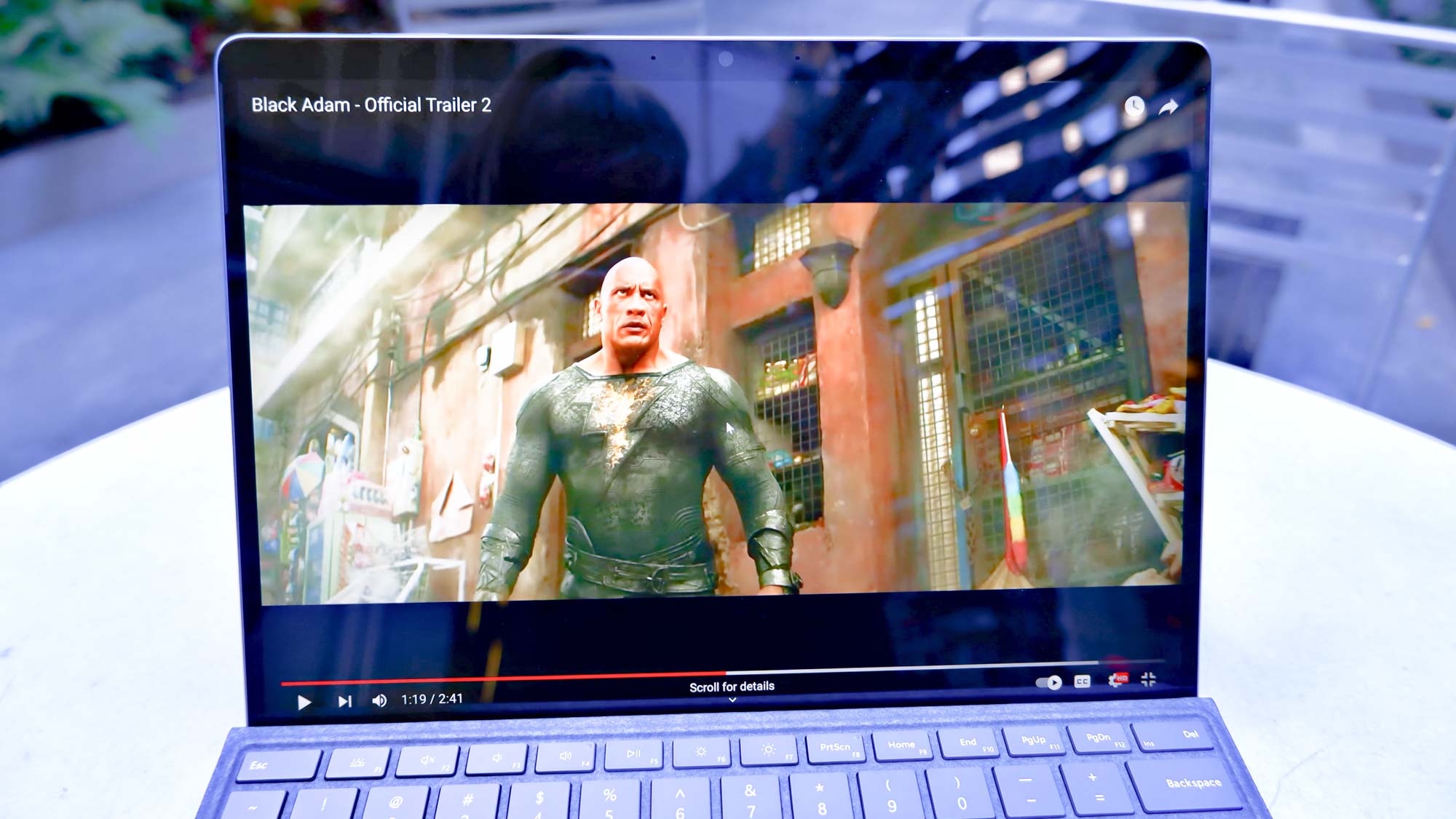
Based on our testing, the display achieves an average of 431.6 nits and hits 447 nits around the center of the screen. This is close to the peak 450 nits Microsoft advertises for the Surface Pro 9. In contrast, the 2-in-1 Lenovo Yoga 9i Gen 7 hits 357 nits while the iPad Pro 2022 topped out at 587 nits.
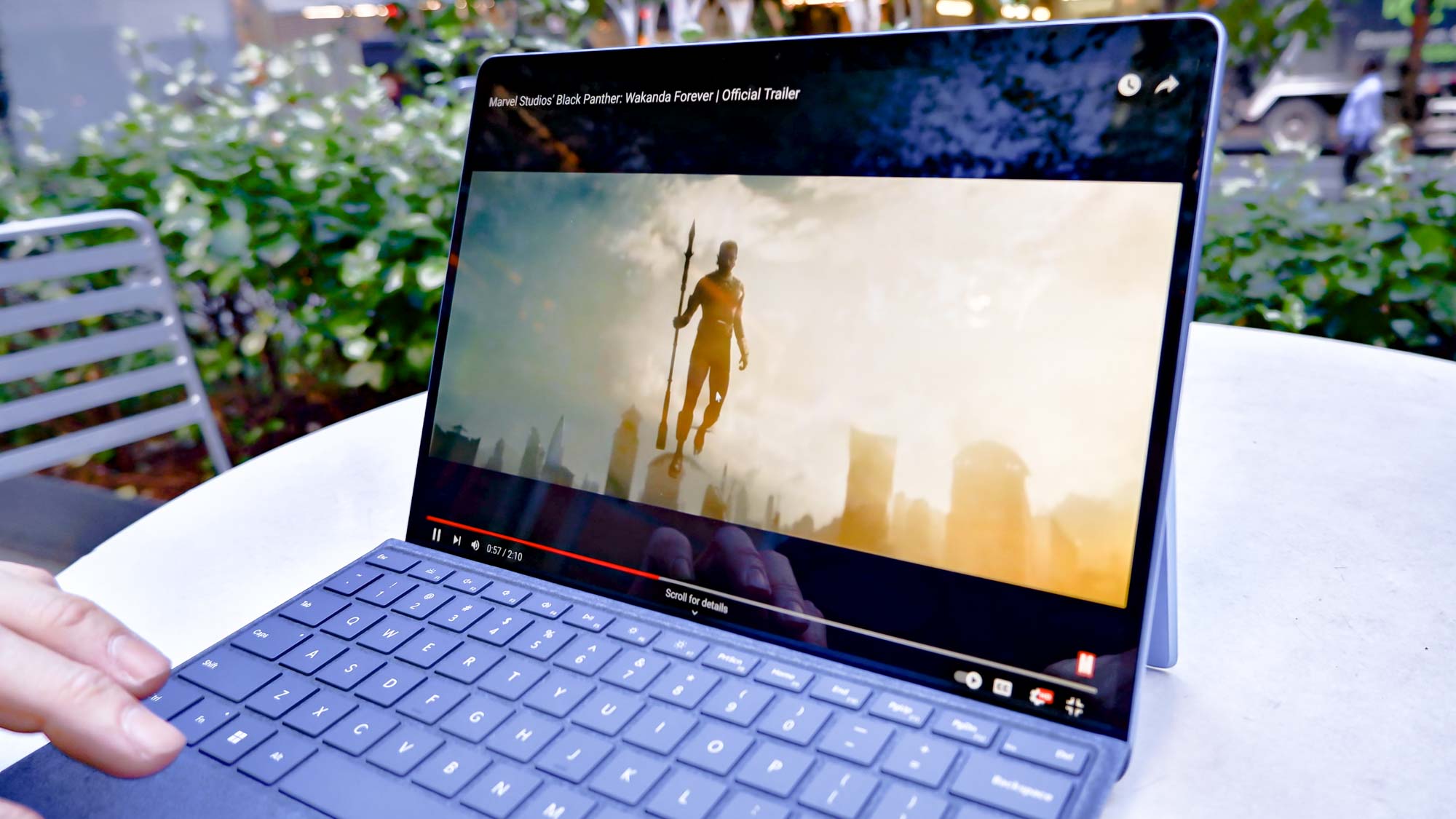
We pointed our colorimeter at the Surface Pro 9's screen and found it achieves 106.1% of the sRGB color gamut and 75.1% of the DCI-P3 color gamut (the closer to 100%, the better). Color-wise, the iPad Pro’s display covered 117.1% of the sRGB color gamut and 82.4% of the more demanding DCI-P3 color space.
I found the touchscreen responsive and there was never a time when I felt it didn’t detect my taps and swipes. Of course, Windows 11 works extremely well on tablets so I’m not surprised by these results.
Microsoft Surface Pro 9 review: Audio
- Clear, crisp sound
- Speakers don’t get very loud
The Surface Pro 9 has the same speakers as its predecessor. I wasn’t too impressed by the audio quality of the previous machine so I didn’t come into this review with high expectations.
The speakers delivered clear audio when I watched the Black Adam trailer. This is also true when I played Megadeth’s “Holy Wars… the Punishment Due.” The latter lacked some bass, but the song lost little of its power. To put it simply, the speakers are capable of handling various types of audio.
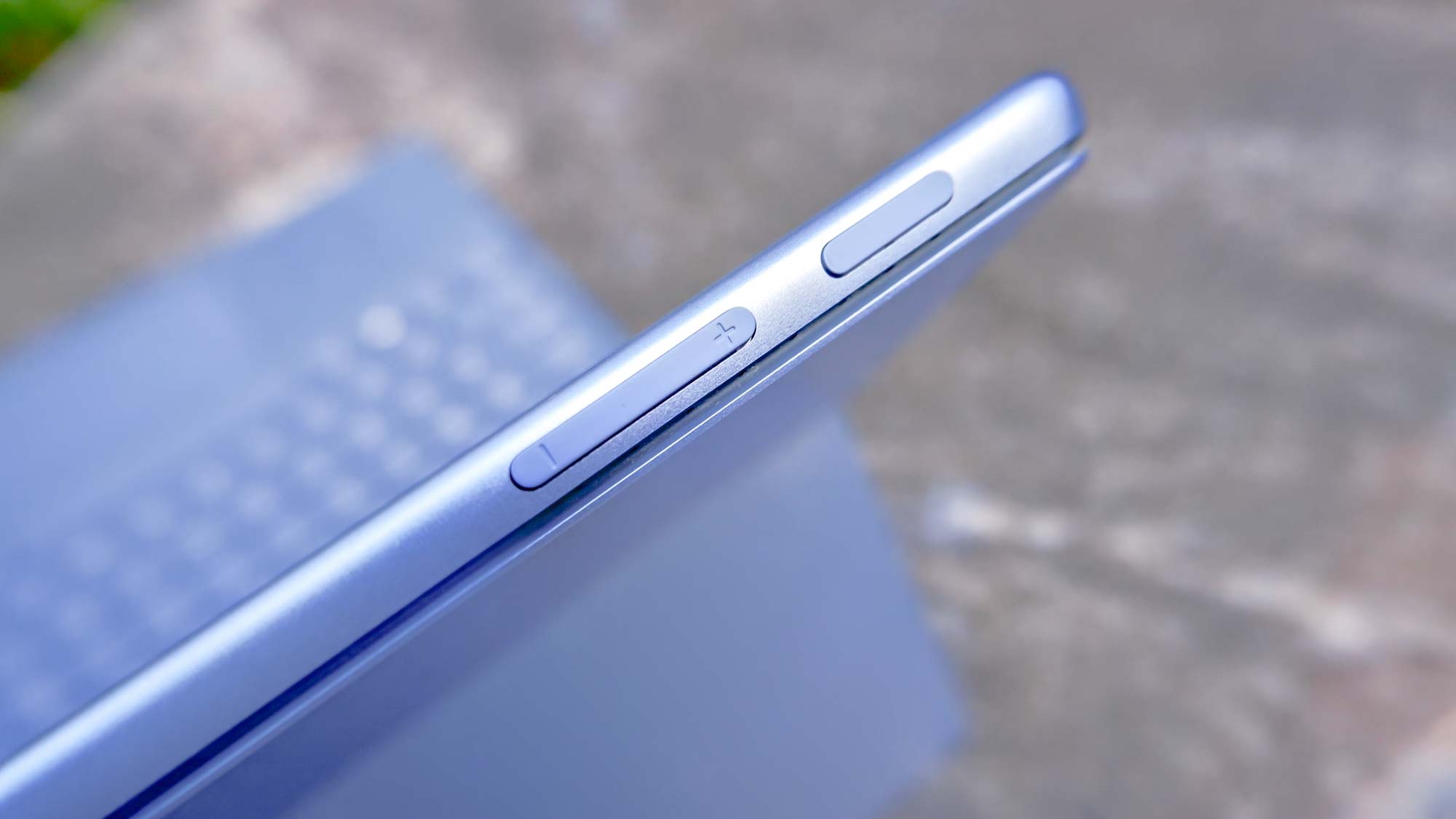
I do wish the speakers got louder, however. Perhaps years of listening to blaring heavy metal have ruined my hearing, but the Surface Pro 9 didn’t get very loud, even with the volume set to max. In contrast, the iPad Pro 2022’s quad speakers are loud enough to fill an entire room. I suppose two speakers can’t get as loud as four, but I would have liked overall louder audio.
Microsoft Surface Pro 9 review: Performance
- Great multi-core performance
- Fast video transcoding
- Not great for local gaming
We tested both the Intel and ARM models of the Surface Pro 9. I’ll compare these versions in the following segment, but for now, let’s see how the Intel model fared in our benchmark tests.
On Geekbench 5.4, which measures overall performance, the Surface Pro 9 scored 1,633 on the single-core portion of the test and 8,541 on the multi-core. In comparison, the Surface Pro 8 scored 1,343 and 5,347, respectively. The Yoga 9i Gen 7 did better on the single-core test (1,722) but falls behind on multi-core (7,170).
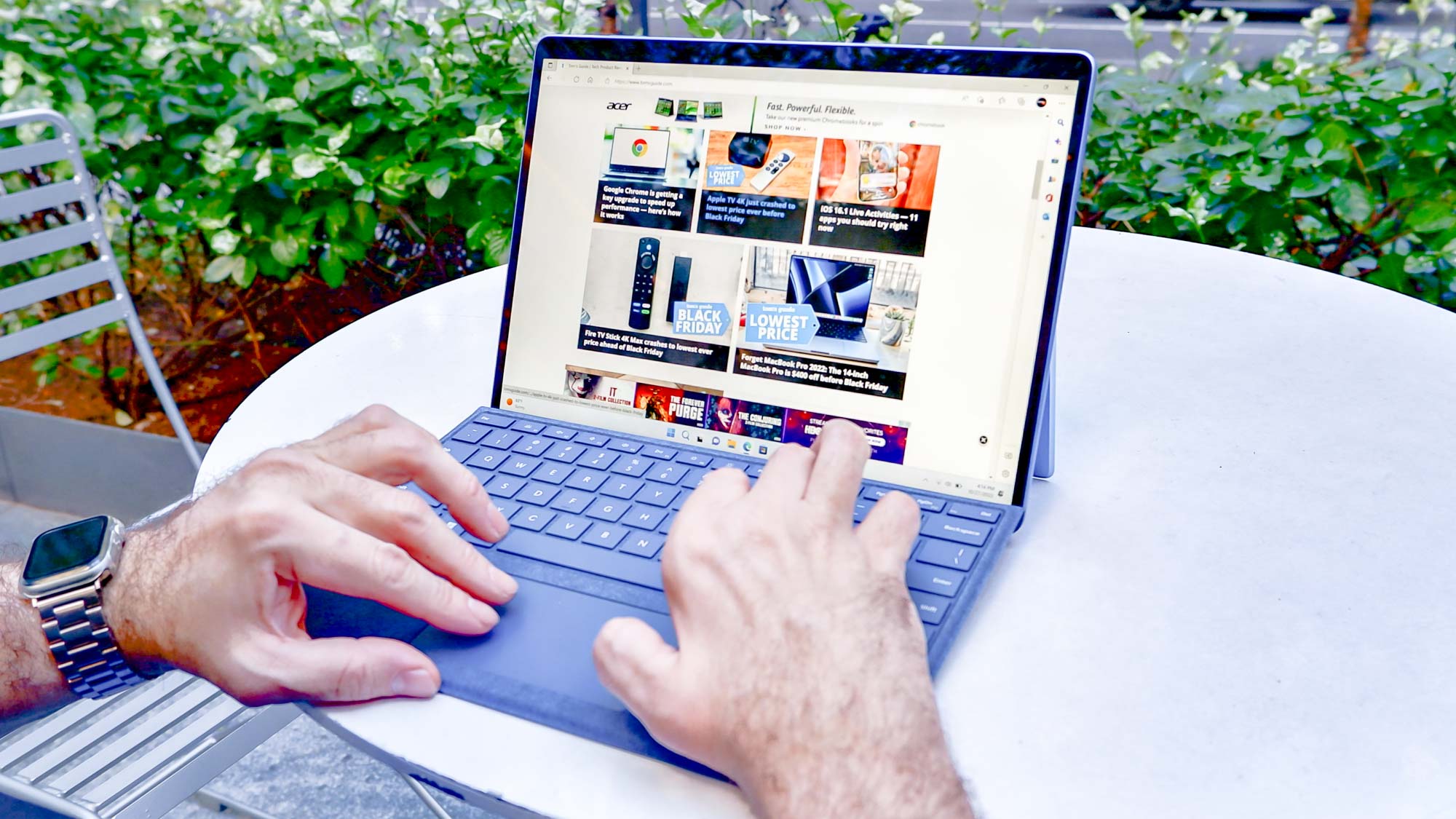
Though the Surface Pro 9 surpasses its predecessor in this category, it can’t match the M2-powered iPad Pro 2022, which scored 1,862 on the single-core portion and 8,500 on the multi-core test.
The Surface Pro 9 transcoded a 4K video to 1080p using Handbrake in 9 minutes and 34 seconds, which surpasses the time it took the Yoga 9i Gen 7 to complete the same task (12:18). The Surface Pro 8 took a leisurely 13 minutes and 30 seconds, in comparison.
During my own qualitative testing, the Surface Pro 9 had no trouble handling upward of 20 open tabs. I tossed a YouTube video into the mix but the 2-in-1 kept on chugging along without a hitch.
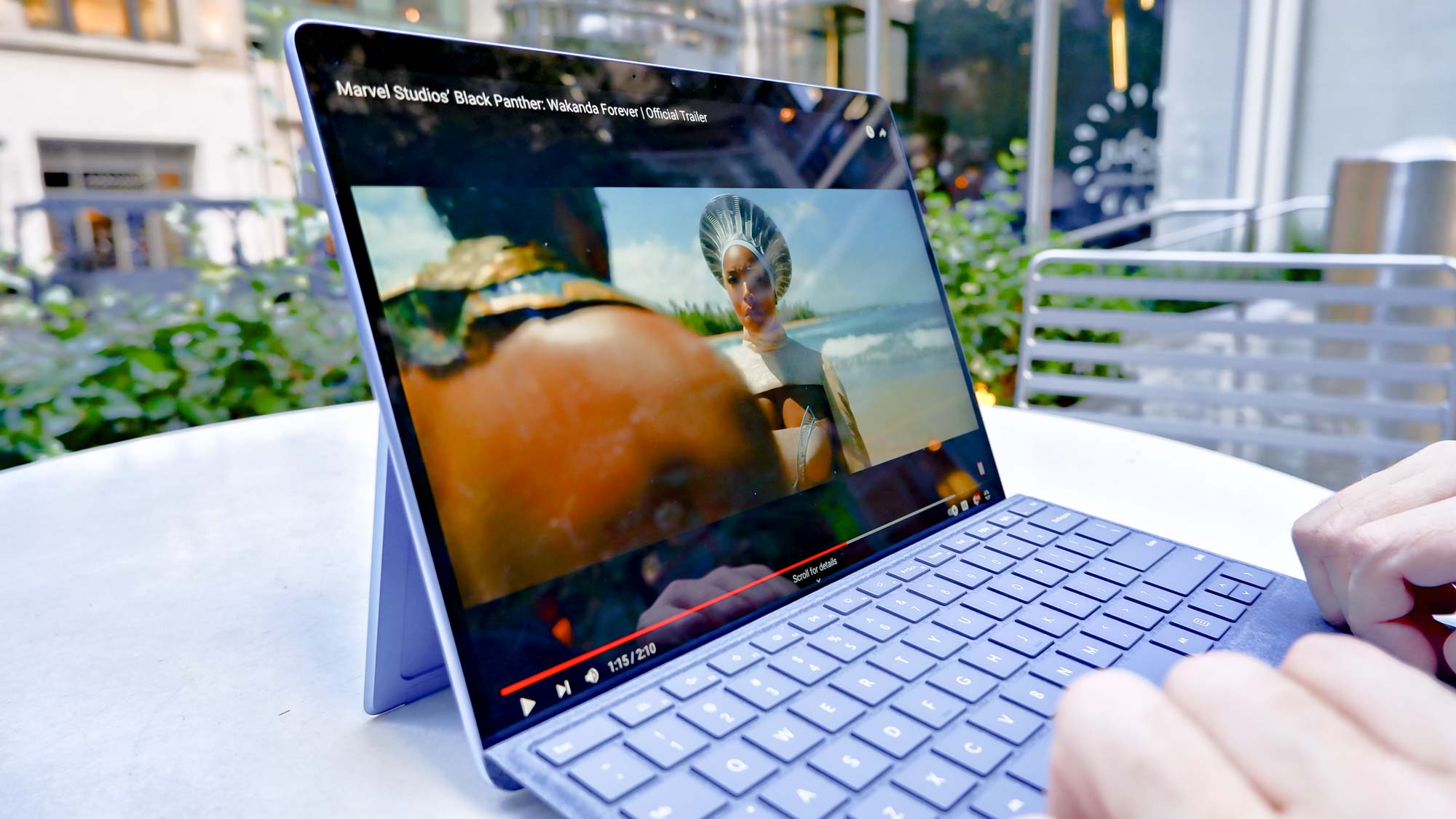
Since the Surface Pro 9 relies on Intel Iris Xe graphics instead of a discrete graphics card, you’re going to have a rough time playing games locally on the device.
Sid Meier's Civilization VI: Gathering Storm averaged a pathetic 24 fps at 1080p resolution and an even worse 17 fps at 1920p. In contrast, last year’s model averaged 37 and 29 frames per second (respectively) at those resolutions.
If you want to play video games, then I suggest doing so via streaming services like Xbox Cloud Gaming or GeForce Now.
Microsoft Surface Pro 9 review: Intel vs ARM
- Intel version crushes ARM
As said above, there’s a Surface Pro 9 packing a Microsoft SQ3 SoC (System on Chip) processor. Though we didn’t review this unit, we benchmarked one in our testing lab. Because of that, we wanted to briefly spotlight some of the key differences between the Intel and ARM versions of the Surface Pro 9. You can read our Microsoft Surface Pro 9 Intel vs ARM benchmarks: This is a huge difference piece for a more comprehensive look at the two machines.
As demonstrated during the Microsoft Surface event, the SQ3’s Neural Processing Unit (NPU) has advanced audio and video features meant to make video conferencing with others a smoother experience. For instance, this feature intelligently eliminates loud background noises when someone is speaking. Another feature makes it appear as if you or whoever is on the call is looking directly at the front-facing camera, even when you're looking at the screen. 5G connectivity is also a feature that’s exclusive to the ARM Surface Pro 9.
On Geekbench 5.4 the Intel Surface Pro 9 scored 1,633 on the single-core portion of the CPU test and 8,541 on the multi-core. In comparison, the ARM Surface Pro 9 scored 1,125 on single-core and 5,849 on multi-core. We're talking about a 45% jump in single-core for Intel and 46% for multi-core, which is pretty incredible.
| Header Cell - Column 0 | Surface Pro 9 (Intel) | Surface Pro 9 (ARM) |
|---|---|---|
| Price | $999 (starting) | $1,299 (starting) |
| CPU | 12th gen Intel Core | Microsoft SQ3 |
| Graphics | Intel Iris Xe Graphics | Adreno 8CX Gen 3 |
| Display | 13-inch (2880 X 1920) PixelSense Flow Display | 13-inch (2880 X 1920) PixelSense Flow Display |
| Memory | 8GB - 32GB (LPDDR5 RAM) | 8GB or 16GB (LPDDR4x RAM) |
| Storage | 128GB - 1TB | 128GB - 512GB |
| Ports | 2 Thunderbolt 4/USB-C ports, 1 Surface Connect port, 1 Surface Keyboard port | 2 USB-C ports, 1 Surface Connect port, 1 Surface Keyboard port, 1 nano SIM slot |
| Size | 11.3 x 8.2 x 0.37 inches | 11.3 x 8.2 x 0.37 inches |
| Weight | 1.94 pounds | 1.95 pounds |
The Surface Pro 9 transcoded a 4K video to 1080p using Handbrake in 9 minutes and 34 seconds. This is using a 6.5GB file. Conversely, the ARM version took 12 minutes and 58 seconds to complete the same task natively. That's a pretty big time difference of about 2.5 minutes.
As mentioned above, Sid Meier's Civilization VI: Gathering Storm averaged 24 frames per second at 1080p resolution and 17 fps at 1920p on the Intel Surface Pro 9. That’s bad, but when compared to the SQ3’s abysmal 14 and 11 frames per second (respectively), the Intel version is the clear winner.
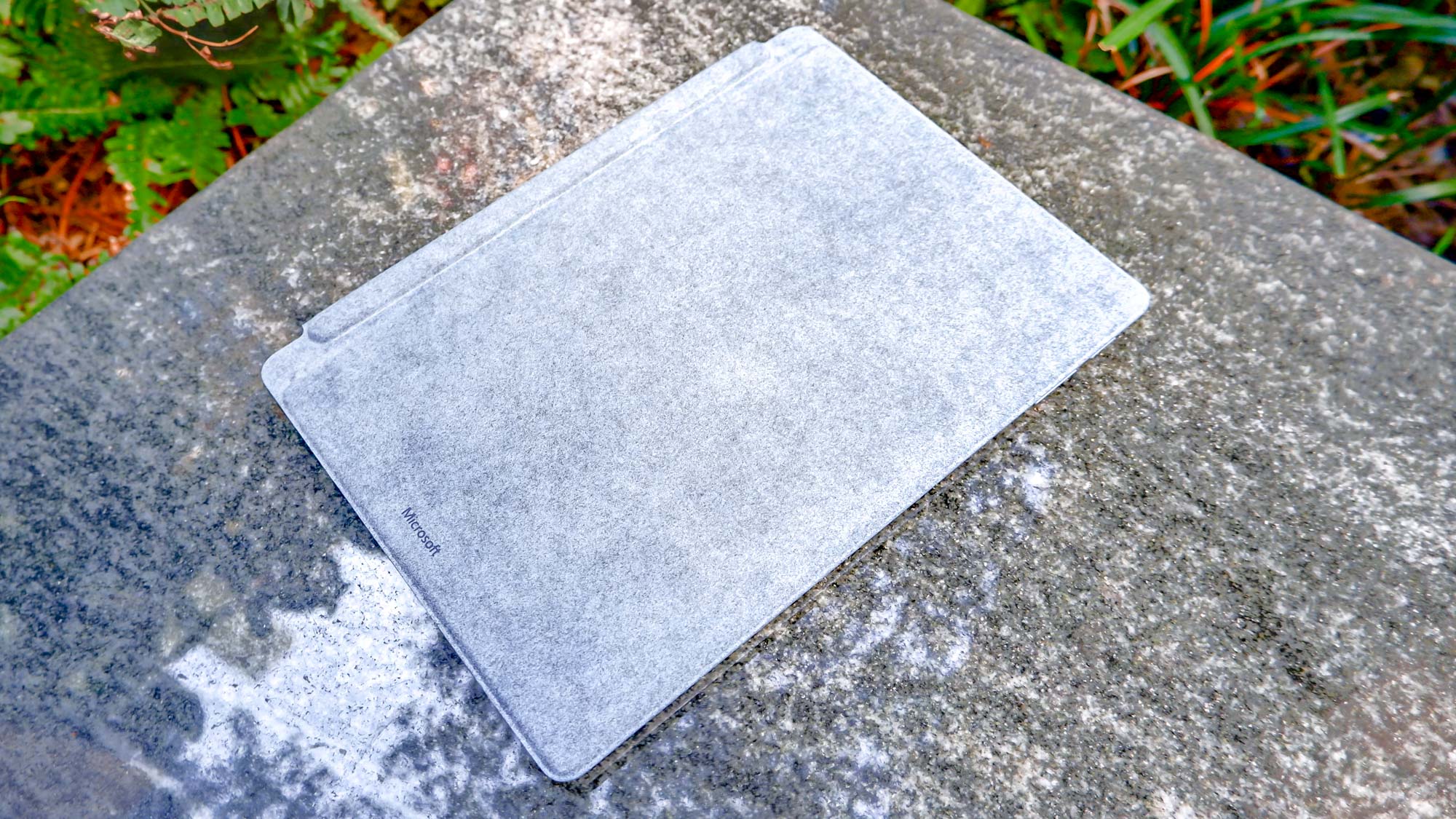
On the other hand, the Surface Pro 9 (SQ3) lasted 11 hours and 17 minutes. The SQ3 chip is based on the Snapdragon SoC (system on chip) platform, which is a mobile CPU designed to be more energy efficient compared to a computer processor. Because of that, it’s not surprising to see that the ARM version has better battery life than the Intel version, which lasted for 10 hours.
Based on the specs and numbers shared above, the Intel Surface Pro 9 handily beats the ARM Surface Pro 9 in all performance tests. The only advantage the SQ3 Surface Pro 9 has is battery life.
The Surface Pro 9 with an Intel chip seems like the better overall option. This is especially true because the Intel version is cheaper.
Microsoft Surface Pro 9 review: Battery life and heat
- 10-hour battery life
- Doesn’t get overly hot
On our battery test, which involves continuous web surfing over Wi-Fi at 150 nits of brightness, the Surface Pro 9 lasted for 10 hours. This is far below the advertised 15.5 hours, but definitely higher than the Surface Pro 8 (9 hours and 6 minutes). The iPad Pro 2022 (10:36) has a longer battery life, however.
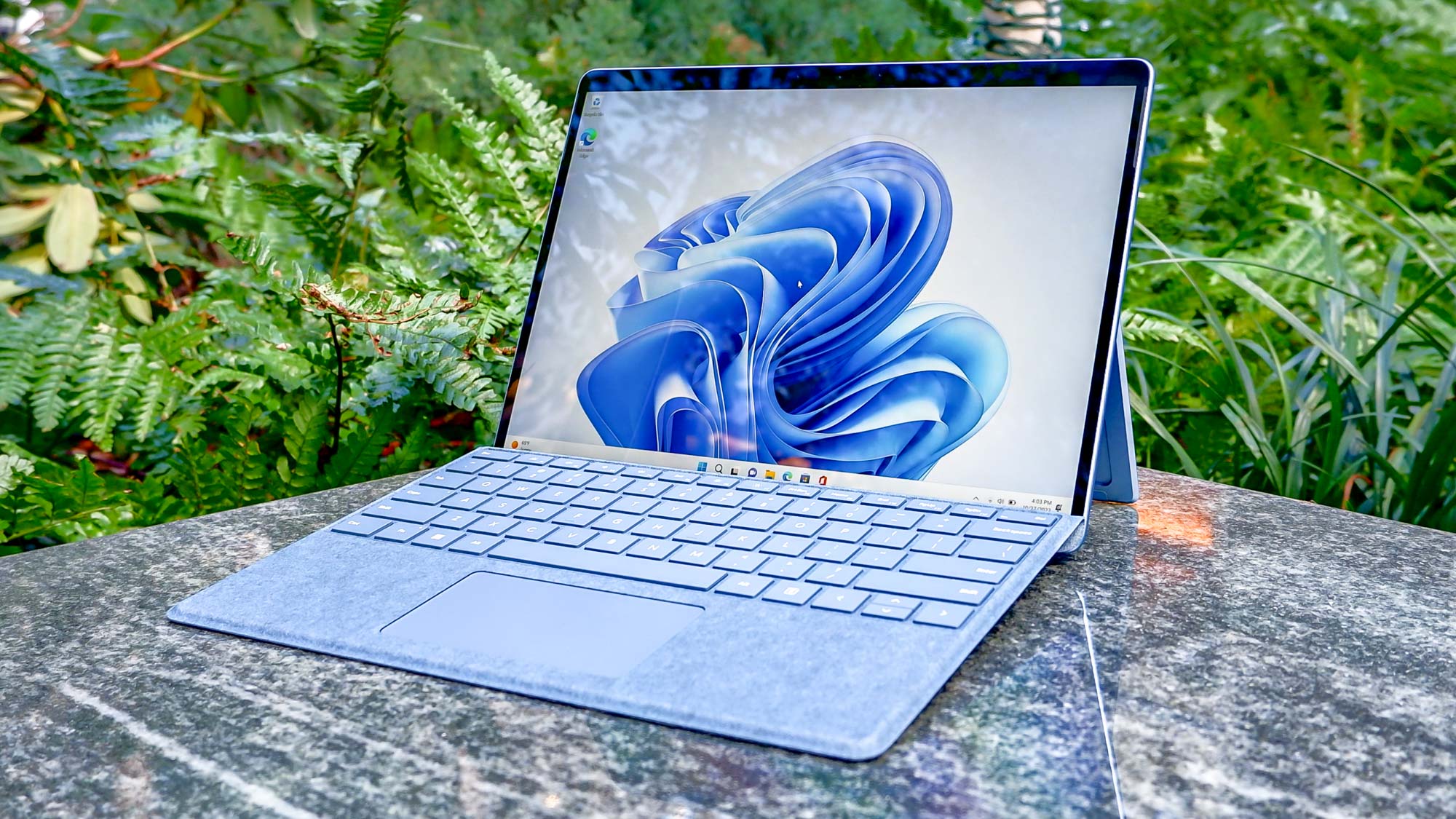
In our standard heat test, which involves running a heat gun over a device after streaming 15 minutes of full HD video on it, we found the hottest point to be on the upper right side of the 2-in-1, which peaked at 95.2 degrees Fahrenheit.
We generally consider temperatures over 95 degrees as being uncomfortable. Since the Surface Pro 9’s hottest point doesn’t exceed that temperate, it should be fine to keep the device on your lap for extended periods.
Microsoft Surface Pro 9 review: Webcam
- 1080p front camera and 10MP rear camera
- Both capture images fairly well
Low-quality webcams on laptops and tablets are something of a sore spot for me since I’m frequently on conference calls. I’m still annoyed that the new MacBook Pro 13-inch has a dated 720p webcam. Thankfully, the Surface Pro 9 features a fairly crisp 1080p front-facing camera that will help you look good on calls. It also packs a decent 10MP camera on the rear if you’re inclined to take photos with this machine.
I tried both cameras in our office and found them adept at capturing images and video. I was particularly impressed by the 1080p front camera, which managed to add some color to my otherwise pale complexion. The rear camera was almost as good, though the image quality appeared somewhat grainy and washed out compared to the front camera.
Microsoft Surface Pro 9 review: Software
- Comes with Windows 11 Home
- Free trials for Microsoft 365 Family and Xbox Game Pass
The consumer version of the Surface Pro 9 runs on Windows 11 Home and comes pre-loaded with Microsoft 365 apps and the Xbox app. You can test both applications for free thanks to included 30-day trials for Microsoft 365 Family and Xbox Game Pass Ultimate, respectively.
Microsoft Surface Pro 9 review: Surface Slim Pen 2 and Surface Pro Signature Keyboard
- Responsive keyboard and trackpad on Surface Pro Signature keyboard
- Slim Pencil 2 feels good to use
The Surface Pro Signature Keyboard with Slim Pen 2 is sold separately for $279 on the Microsoft Store.
As with last year’s model, I found the attachable keyboard to be a vital peripheral. The built-in keyboard interface works well enough, but I prefer the tactile feel and responsiveness of the keyboard. The trackpad was equally as responsive.
Though the keyboard is too flimsy for my tastes (I prefer chunky mechanical keyboards), the keys produce a satisfying click when pressed and they also have a good amount of resistance.
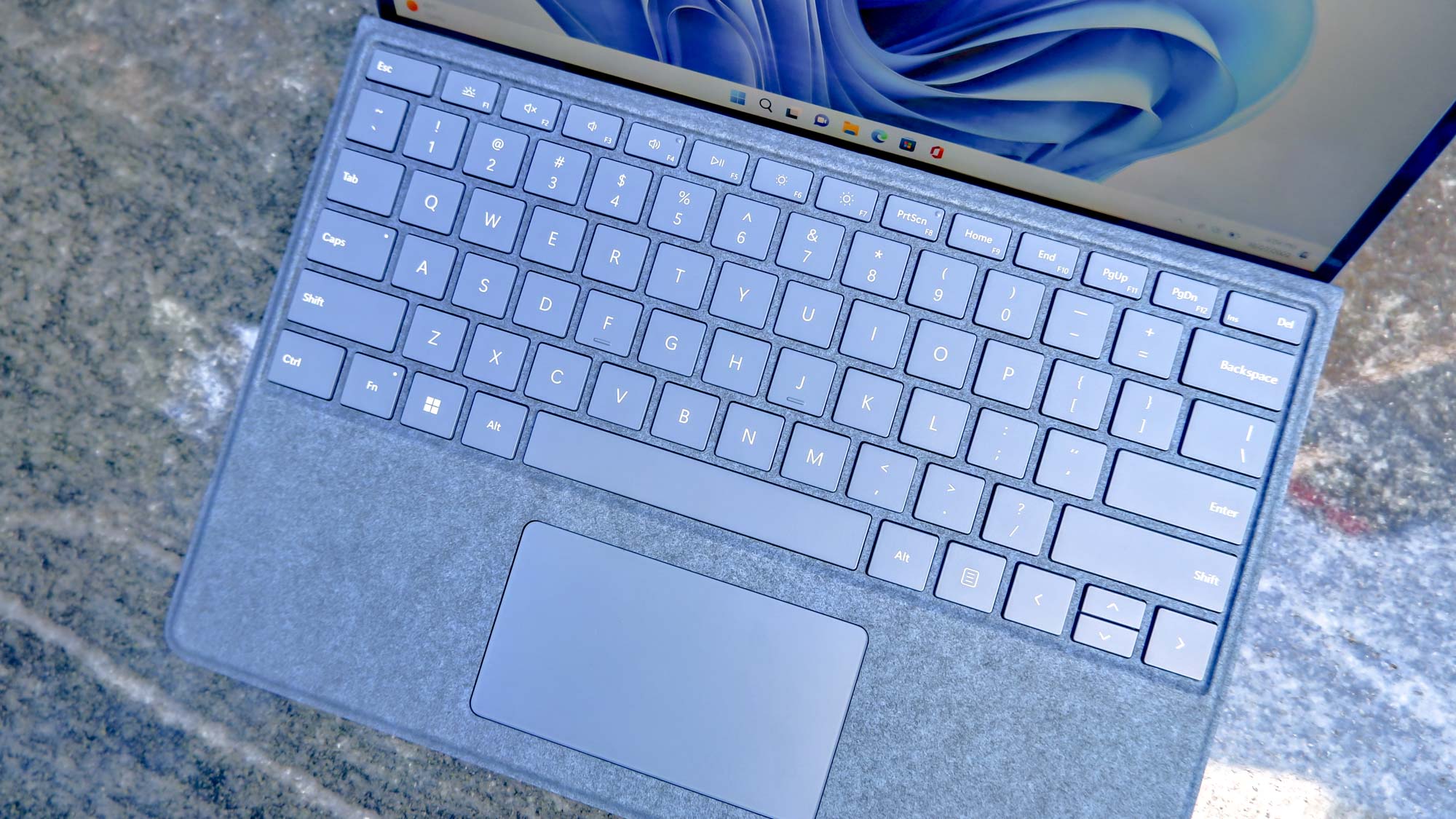
The Slim Pen 2 is as good now as ever. Its haptic motors do an admirable job of imitating what it’s like to write on actual paper. I prefer the thicker Apple Pencil over the Slim Pen 2 since it feels more like an actual pencil, but Microsoft’s faux-pen works as well as intended. It’s good to have in case I need to digitally sign for anything, at least.
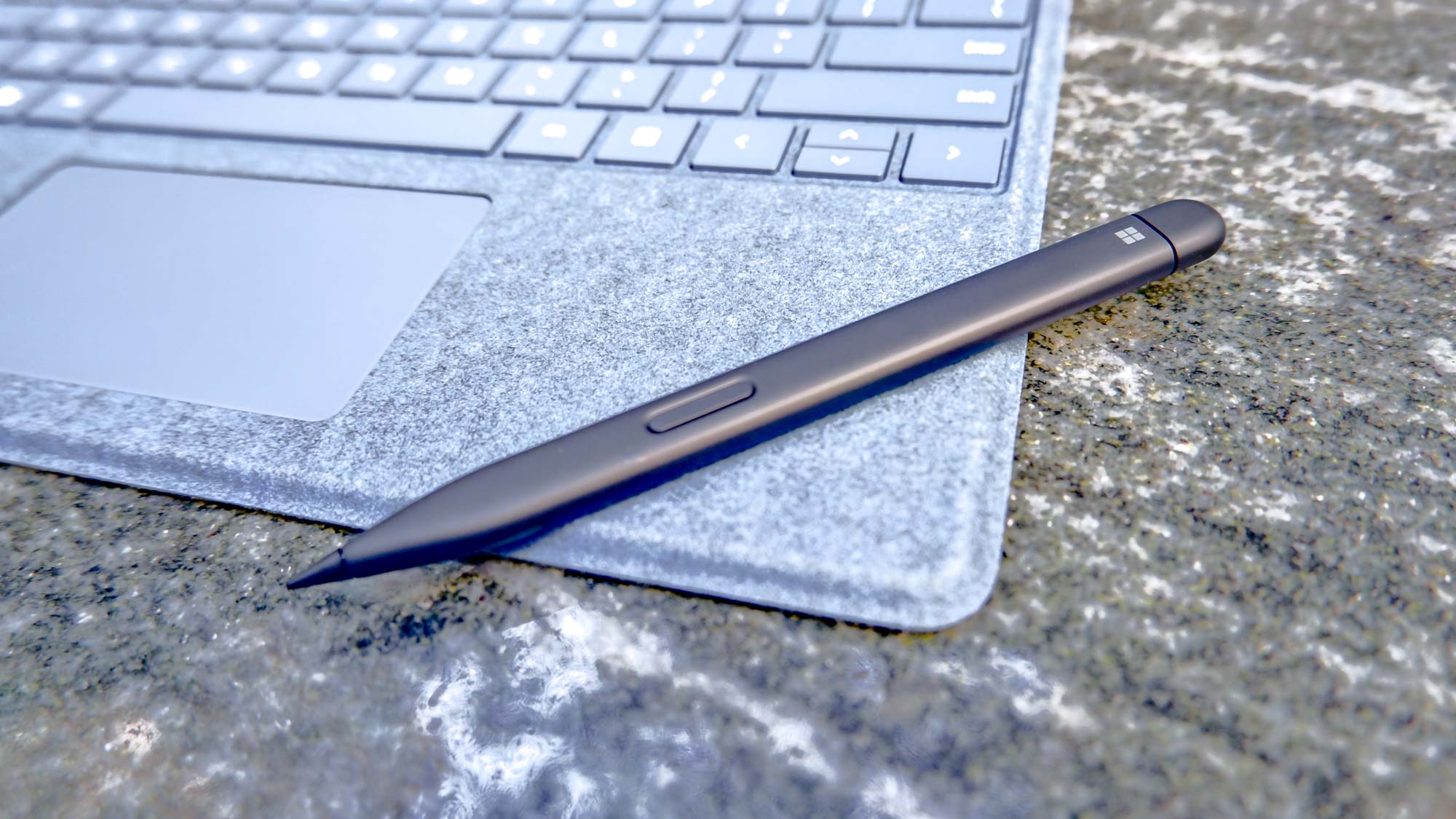
Unfortunately, you’ll have to purchase these peripherals separately since they don’t come bundled with the Surface Pro 9. I understand that companies need to make money however they can, but I think it would be wise for Microsoft to include the Surface Pro Signature Keyboard and Surface Slim Pen 2 in future Surface Pro devices at no extra cost. If anything, it should help the Redmond-based tech giant sell more machines.
Microsoft Surface Pro 9 review: Verdict
The Microsoft Surface Pro 9 isn't a bad or worthless machine. It's powerful enough to handle everyday computing tasks, has a decent screen for watching videos and is lightweight enough to comfortably take wherever you go. It may not redefine the 2-in-1, but if you want something that's suitable as a laptop or tablet, this machine gets the job done.
With that said, it's still hard for me to recommend the Surface Pro 9 to anyone but the most die-hard fans of this series. Even if it's pricier, I'd suggest the Samsung Galaxy Book2 Pro 360 ($1,249). Not only is it more powerful, it has a gorgeous 15.6-inch AMOLED display. The Lenovo Yoga 9i Gen 7 ($1,449) is another excellent 2-in-1 well worth checking out. And of course, if you want an Apple product, the iPad Pro 2022 ($1,099) is another device I'd highly recommend.

Tony is a computing writer at Tom’s Guide covering laptops, tablets, Windows, and iOS. During his off-hours, Tony enjoys reading comic books, playing video games, reading speculative fiction novels, and spending too much time on X/Twitter. His non-nerdy pursuits involve attending Hard Rock/Heavy Metal concerts and going to NYC bars with friends and colleagues. His work has appeared in publications such as Laptop Mag, PC Mag, and various independent gaming sites.
-
KnightRat I cannot agree with this review. The Surface pro 9 is the second iteration of the redesign they did in the pro 8 unless of course you count the X. I think it is a striking look. It gives up on the sides and then adds to the top and bottom.Reply
When doing the Geekbench score you show single core at 1633 and the ipad at 1862 but seem to imply that is a large dropoff. Again, I am not seeing that as far away, and even the Surface matches the iPad in multi-core.
i get the detachable hybrid is not for everyone. This design will always have a floppy keyboard until they introduce a hard base again like the surface book.
So, let's recap: good batter life is not far away from the iPad, performance is not far from the iPad, and you get an all-in-one device. Sounds like a winner to me. -
TheWerewolf This is a surreal review.Reply
First off, the Surface Pro line isn't a gaming device. It's a tablet. There's really only one gaming tablet out there - the ASUS Rog Flow Z13.
As for design - what, they're supposed to change something that works because reviewers get bored?How many versions of iPads and MacBooks has Apple cranked out and I rarely hear anyone say "damn, looks the same as last year's."
It has two THUNDERBOLT 4 ports. That makes it a tablet you can hang an eGPU on. And again tablet. No iPad has HDMI ports - heck, most have just one port and until recently, that wasn't even a USB port!
The display is calibrated and is aimed at artists. As an artist, it's excellent. I don't know what you're expecting but I find it hard to think it makes sense.
Sorry, this review feels like an Apple fan has been asked to review a non-Apple device, can't really find anything to complain about, so just writes an article filled with personal preferences. -
roblittler77 What a bizzare and unbalalanced review,Reply
The reviewer spends more time complaining that the Surface Pro 9 isn't as good as the Ipad Pro than they do reveiwing the tablet. States that the Ipad Pro beats the Surface Pro in performance, when the Surface Pro actually showed higher multicore performance, which means it has more processing power.
Finally lambasts the Surface Pro's gamng performance because the Ipad Pro ran a mobile game smoothly while the Surface Pro struggled to run an AAA desktop PC game. How is this a like for like comarison? -
DE486 As a long duration owner/user, I can tell some huge negatives that overshadow what a brilliant piece of technology it is. First, Camera doesn't have a slide cover (I know official response from MS is that it is hard wired to light up if it is used or misused or hacked, so can never be on without your knowledge. They are idiots. They solved the wrong problem completely forgetting the customer. It is not the hackers but the user itself that is an issue everyday. If you sign in to zoom with camera on as default or happen to touch camera unlock button by mistake, you know what I am talking about. It is a touch screen. Cameras can switch on inadvertently. A physical slide cover is 100% necessary. Enough said). This is the single biggest reason I went back to my Lenovo as the main daily machine. Second, it doesn't have a hard switch for Mute on the keyboard or main body. Why would you need it, you ask? Similar reason as failure risk of digital mute is high. Mute doesn't work in apps sometimes. I have seen it in zoom, teams, microphone apps, etc and the failure rate of software mute is not insignificant. Third, all peripherals are expensive. Currently writing from the official keyboard (and official pen which I have not used much to be honest. Touch works better than the pen on screen. Touching a hard pen seems dangerous even if it could be just a false perception). If pen is unnecessary, the official mouse is downright bad. I have Logitech MX master mouse that is like space age tech compared to the MS mouse that is hard on your wrist and needs hard clicks like on a dollar store mice . The only good feature is this mouse folds out to become 180 degree flat. If you want that feature for a really bad mouse, go ahead. Keyboard is pretty good and light and magnetically snaps on with ease and a satisfactory click. Really nice to use. Soft keys and zero problems. Happy to recommend the keyboard for daily use. Fourth, finally, this is a heavy machine. It is heavier than the mid-range Lenovo Thinkpad I have. Compared to the lightest Thinkpads or Dell or HP laptop, this is massive overweight really thick machine. (not sure about you but I don't like bulky machines. One feature I like in a cellphone or tablet or laptop/tablet dual use device like this is Superthin built. This lets you down badly. Overall, very nice machine with brilliant touchscreen but practically useless to me due to the lack of camera cover (as I wanted to ditch my desk laptop for this which I can't now. This just stays a travel machine now). I get by with sticky notes on the camera which is a real shame after how much I paid for it $3000+ Oh and did I say, if you plan to use it like a laptop I was in for a shock when I realized this doesn't stay open like a laptop on an actual lap (with the keyboard attached to it). The only real way to use it is either fixed on a desk or flat on your lap. You can't pick up and walk with it like an open laptop. If you pick up from the desk, it goes all floppy and keyboard goes in one direction and the screen in another. There , have fun.Reply
